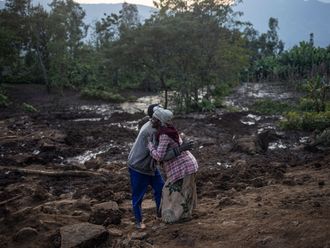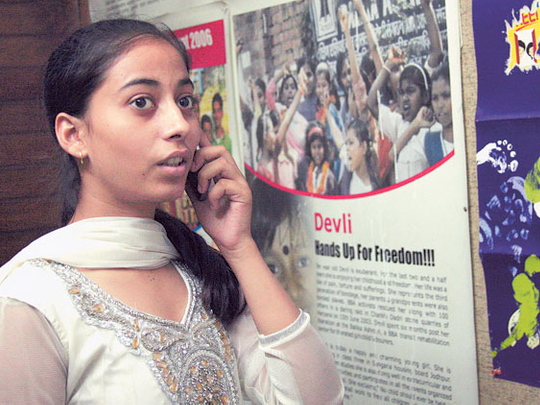
New Delhi: Teenager Razia Sultana has been honoured with the United Nations’ Special Envoy for Global Education’s Youth Courage Award for her work in freeing children from labour.
Having worked as child labour, 14-year-old Razia, from the remote village of Nanglakumbha on the outskirts of Meerut in Uttar Pradesh, has not only educated herself, but also has been instrumental in getting other children of her village to break the shackles of child labour and motivated them to study.
The award was announced in New York on July 12, which was heralded as Malala Day to highlight the leading role that youth can play in instigating children to get education. With this recognition, Razia has also made children of her village aware of Pakistan’s Malala Yousafzai, who had been shot by the Taliban for speakling against the ban on girls attending school in Swat Valley.
Razia, along with the child brigade, has often taken up cudgels against school authorities and village heads. And when she got no positive response, she reported the matters to the higher authorities, resulting in new norms.
She speaks to Gulf News in an exclusive interview.
GULF NEWS: What are your childhood memories?
RAZIA SULTANA: I used to go to school and thereafter, along with many other children, would stitch footballs. A contractor would handover the raw material to us and we would get down to work. Each small football would fetch us Rs5 (30 fils) and a bigger one Rs8.
What circumstances at home forced you to work?
My father is a farmer and though I was not forced into working, I would do so, as all my friends worked. Most come from a poor background and worked as bonded labourers just for the fact that their parents had taken loans from the contractors and were unable to repay. Meerut continues to be famous as the third largest sports goods producer in the country and, therefore, many people exploit the situation. The football stitching business is notorious for child labourers working in almost all villages in Meerut’s vicinity.
So, how did you manage to stop children from working and instilled in them the power of education?
In 2006, some members of the NGO Bachpan Bachao Andolan visited our village. They told us about their efforts in withdrawing children from exploitative child labour. They set up a bal panchayat (child court) that could take its grievances to the village panchayat, which would look into the problems children faced. I was chosen the head of the bal panchayat. Similar modules were created in several other neighbouring villages and the NGO started making us aware of our rights.
I saw sense in it all and explained to my peers how education could get us out of the rut of child labour and we could earn much more and have a better standing in society. When some children refused to listen, I approached their parents and motivated them to send their children to school. My special focus was girls from the Muslim community and I even taught some of the older children myself, before they could enrol themselves in higher classes instead of joining at the primary level. It led 48 children, both who attended school irregularly and others who had never been to a school, to enrol themselves in schools. With all our efforts, now child development tops the charts in and around our village.
Did you face any difficulties?
The toughest task was to get the village heads to change their mindsets and get them to work for the betterment of the village. But they would try to bog me down saying I was behaving like a leader and even complained to my father. But I listened to my heart and fought for our rights. For instance, the village school would charge students Rs50 to Rs100 for a Transfer Certificate, which according to government rules, comes for free. I complained to the principal and then to the village heads, but none intervened. They said it was a rule. That’s when we approached the District Magistrate and apprised him of the situation. He ordered action against the school authorities and now things have changed.
Which other issues have you taken up?
From getting basic infrastructure facilities like separate toilets for girls and boys constructed in school to setting things right in the kitchen, the issues have been many. Though the government had allocated gas cylinders for cooking mid-day meals in schools, the village head was using the cylinders in his house! Plus, the food was cooked in dirty utensils and was so rotten that we asked the authorities to first eat it themselves before serving the children. Now, good quality food is served.
Are you satisfied with the education system in schools?
Not at all. Compared to the private school teachers who earn about Rs7,000 monthly and put in all their efforts into educating the children, government school teachers who earn above Rs25,000 per month, come to schools only to sleep. So, many children end up dropping out of schools. We often hear political leaders shouting hoarse at public platforms that children are the future of the nation, but while they send their own children to study abroad, the education system in government schools remains pathetic. This must change. We are identifying concerns that affect children and am especially ensuring education for the girl child.
To what would you give credit to the ongoing change in your village?
It is all because of education and awareness that things are changing not only in our village, but also the surrounding ones. We are making even the elderly people aware of the Right To Information (RTI) Act and educating them about their voting rights. It is important for them to see that the leader they vote for works for the development of the village. For long, we have been requesting for better roads in the village, but nothing has been done. Also, since the village gets electricity intermittently, throughout the day and night, it affects our studying schedules. So, we require installation of more solar lights.
What other requirements do you seek for your village?
My utmost desire is to have a computer system in the village so that children can learn new technologies.


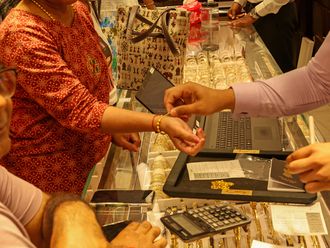
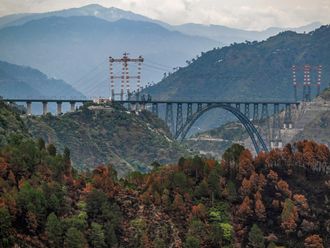

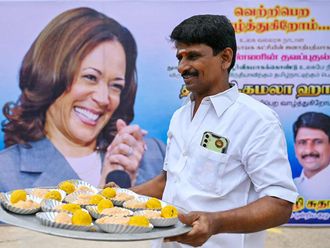
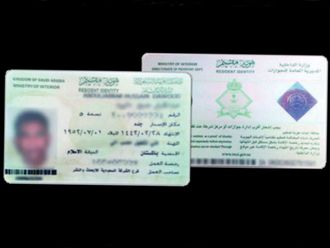

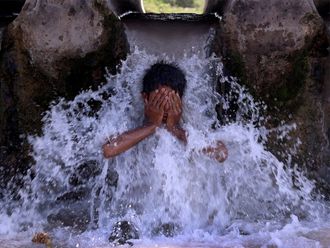

_resources1_16a30b3523c_small.jpg)
